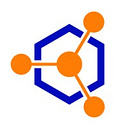How Cytokine Analysis Enhances Research in Immunology and Clinical Trials
Cytokines are crucial mediators of inflammatory and immune response. They regulate complex immune networks and act as potential biomarkers for several pathological and disease states. As cytokines offer deeper insights into pathological and physiological processes, cytokine analysis has substantial value in biology and clinical medicine and supports disease diagnosis and treatment. Multiple factors may impact cytokine quantification, such as sample processing steps, varying levels in body fluids, storage conditions, soluble receptors, freeze-thaw cycles, etc.
Several detection methods are available for cytokine analysis, including assay formats such as MSD cytokine analysis. These methods are sensitive, making them an ideal choice for small-molecule bioanalysis. Cytokine analysis is integral to immunological research. The current article discusses the role of cytokine analysis in enhancing immunology research and accelerating clinical trials.
Cytokines as therapeutics as well as for accelerating clinical trials
Researchers classify cytokines into multiple categories, such as tumor necrosis factors, lymphokines, interleukins, monokines, interferons, transforming growth factors, and colony-stimulating factors. Besides, cytokines are segregated into type 1 and 2 cytokines based on cellular source. Additionally, they can also be segregated as pro- or anti-inflammatory. Pro-inflammatory cytokines stimulate immunocompetent cells and facilitate inflammatory reactions. On the other hand, anti-inflammatory reactions suppress immune cells and inhibit inflammation.
Some cytokines are both pro-inflammatory and anti-inflammatory. These classification based on pro- and anti-inflammatory properties offers a broad outlook for studying and evaluating pathways induced by host responses. A single cytokine may have both properties depending on the context. Besides, a single cytokine may be released by different cells. Hence, a dynamic nature and shifting balance between different cytokine types is critical for mediating and modulating host immune responses.
Pro-inflammatory cytokines have characteristics that can help the host against bacterial invasion in the immediate environment, intestinal tract, or skin flora. Macrophage-released pro-inflammatory cytokines are necessary against infections. Macrophages initiate adaptive immune response and are the initial defense line against infection. Post-stimulation from bacterial products, they release multiple pro-inflammatory cytokines and consistently induces macrophage inflammatory activity. All released pro-inflammatory cytokines are interconnected so that they are released from activated macrophages to modulate immune responses and offer host protection.
Cytokines with anti-inflammatory properties inhibit any excess inflammation caused by pro-inflammatory cytokines. For example, IL-10 is a robust anti-inflammatory cytokine that inhibits pro-inflammatory cytokine production. Besides, it has an anti-inflammatory effect on basophils, mast cells, and eosinophils, regulating and controlling allergy and asthma. As adaptive and innate immune reactions have pro-inflammatory and anti-inflammatory cytokines, they have significant clinical and biological relevance in inflammation, tumorigenesis, angiogenesis, immune cell differentiation, atherosclerosis, viral pathogenesis, neurobiology, aging, and cancer. Hence, researchers are actively investigating the role of cytokines as biomarkers in multiple inflammatory and immune diseases. A robust biomarker can accelerate disease diagnosis and, when employed adequately in drug development, can reduce the developmental lifecycle of pharmaceutical products. This property has increased research studies focused on cytokine discovery and applications in diagnostics and drug development.
In 1976, IL-2 was the first cytokine discovered with therapeutic value. Researchers showed that IL-2 could stimulate natural killer and T cells that are critical in human immune responses. This pioneering work changed the field of immunology. Researchers were able to grow IL-2 in labs and employ them in therapeutic applications. IL-2 was the first cytokine that successfully cured advanced metastatic renal cell cancer and melanoma patients. This approach is still employed in multiple clinical settings.
IL-7 is another cytokine that is characterized as a regulator of T-cell equilibrium or homeostasis. A clinical trial with IL-7 showed that it regenerated T cells. However, they were depleted in chemotherapy. Hence, IL-7 is now used for patients with compromised immune systems. Besides, it may enhance the capabilities of vaccines and other immunotherapies. Another cytokine, IL-15, triggers a similar response to IL-2 and produces immune cells that kill cancerous cells. Clinical trials have demonstrated that IL-15 dramatically increases the activity and growth of natural killer and T cells.
Moreover, cytokines are studied widely for their role in disease progression and understanding. For example, cytokine analysis was at center stage during COVID-19 evaluations. Hyperinflammation is a hallmark of Covid 19 progression. Several pro-inflammatory cytokine levels are elevated in Covid 19 patients, including IL-2, IL-5, IL-4, IL-7, IL-6, IL-10, IL-8, IL-15, IL-13, colony-stimulating factors, interferons, vascular endothelial growth factor, etc. Multiple research studies have published reports on hyperinflammation in different patient populations. Today, research studies are available focused on COVID-19 hyperinflammation. For example, a comprehensive analysis of the COVID-19 convalescent plasma cytokine pattern showed distinct fluctuations in cytokine levels that can be exploited further in clinical trials.
In conclusion, cytokine analysis forms a critical component of inflammatory research and therapeutic development. Their applications in drug discovery and therapeutics make them an exciting research domain. However, adequate efforts will remain crucial to translating experimental research into clinical applications.
